Satellites detect methane plume in Nord Stream leak
Thursday, 06 October 2022 07:02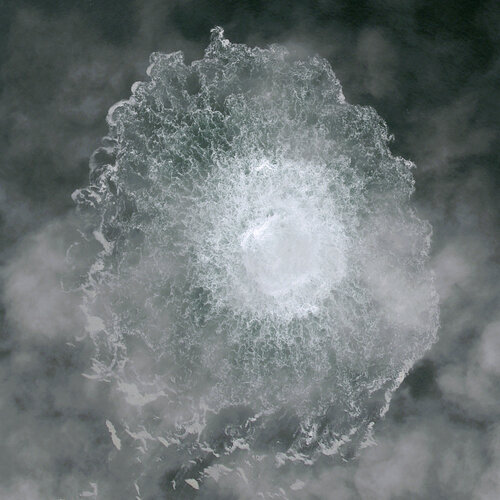
Following unusual seismic disturbances in the Baltic Sea, several leaks were discovered last week in the underwater Nord Stream 1 and 2 gas pipelines, near Denmark and Sweden. Neither pipeline was transporting gas at the time of the blasts, but they still contained pressurised methane – the main component of natural gas – which spewed out producing a wide stream of bubbles on the sea surface.
With the unexplained gas release posing a serious question about the incident’s environmental impact, a suite of complementary Earth observation satellites carrying optical and radar imaging instruments were called
Minerva Mission highlights
Thursday, 06 October 2022 06:00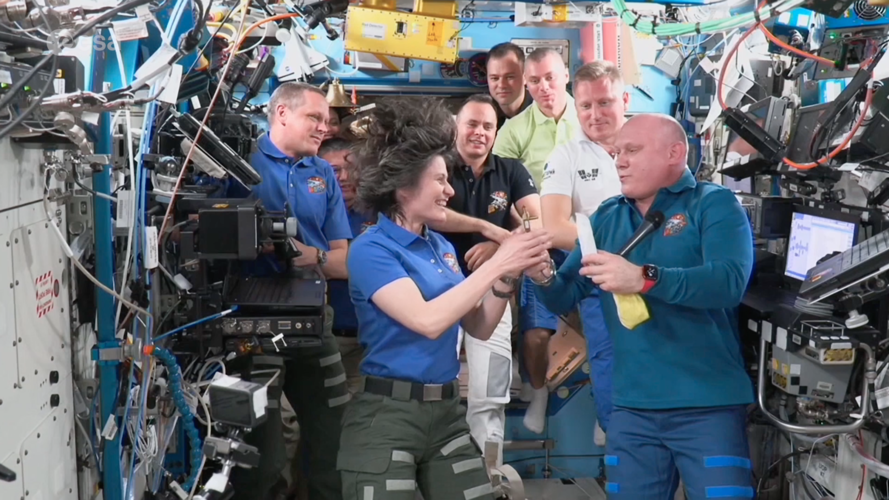 Video:
00:05:03
Video:
00:05:03
ESA astronaut Samantha Cristoforetti will soon complete her second mission to the International Space Station, Minerva.
She was launched from Kennedy Space Center in late April, and since then has supported numerous European and international science experiments, as well as taken responsibility for all operations within the US Orbital Segment. In July 2022 she performed her first spacewalk, during which she carried out work in the Russian segment to bring the European Robotic Arm into operation. At the end of September 2022, she became the first European woman to hold the role of crew commander on the Station.
Eight steps to advance ESA diversity
Thursday, 06 October 2022 04:53
Diversity and inclusiveness are at the heart of the ESA’s values and are high on the ESA Agenda 2025 as key elements to complete the ESA Transformation. Eight steps, aimed at advancing these values as concrete initiatives, will pave the way for continuous improvement.
Next NOAA weather satellite launching just in time
Wednesday, 05 October 2022 22:45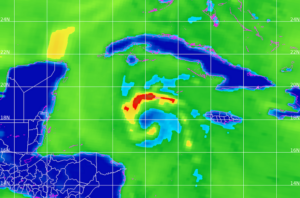
NOAA is preparing to launch the Joint Polar Satellite System-2 on Nov. 1 from Vandenberg Space Force Base in California.
The post Next NOAA weather satellite launching just in time appeared first on SpaceNews.
After successful first launch, Firefly sets sight on national security market
Wednesday, 05 October 2022 21:19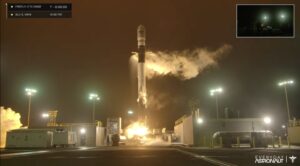
After winning a $17.6 million Space Force contract for a 2023 mission, Firefly eyes more opportunities in the military market
The post After successful first launch, Firefly sets sight on national security market appeared first on SpaceNews.
Amid Ukraine war, US flies Russian cosmonaut to ISS
Wednesday, 05 October 2022 20:47 A SpaceX rocket carrying a Russian crew member blasted off from Florida Wednesday on a voyage that carries significant symbolism as war rages in Ukraine.
Anna Kikina, the only female cosmonaut in service, is part of the Crew-5 mission, which also includes one Japanese and two American astronauts.
"Let's do this," said Nicole Mann, commander of the Crew Dragon capsule and the first Native
A SpaceX rocket carrying a Russian crew member blasted off from Florida Wednesday on a voyage that carries significant symbolism as war rages in Ukraine.
Anna Kikina, the only female cosmonaut in service, is part of the Crew-5 mission, which also includes one Japanese and two American astronauts.
"Let's do this," said Nicole Mann, commander of the Crew Dragon capsule and the first Native Atlas V rocket launches two communications satellites
Wednesday, 05 October 2022 20:47 Two new communications satellites are deployed into space after launching aboard an Atlas V rocket from Cape Canaveral Space Force Station, Fla.
The United Launch Alliance launch went smoothly with liftoff at 5:36 p.m. Tuesday, followed by the jettisoning of the Atlas V's three solid rocket boosters two minutes later and the separation of its first stage about 4.5 minutes after liftoff.
Two new communications satellites are deployed into space after launching aboard an Atlas V rocket from Cape Canaveral Space Force Station, Fla.
The United Launch Alliance launch went smoothly with liftoff at 5:36 p.m. Tuesday, followed by the jettisoning of the Atlas V's three solid rocket boosters two minutes later and the separation of its first stage about 4.5 minutes after liftoff. SpaceX's Crew 5 mission blasts off to International Space Station
Wednesday, 05 October 2022 20:47 NASA and SpaceX's Crew 5 mission lifted off from Cape Canaveral Space Force Station in Florida at noon EDT on Wednesday and is on its way to the International Space Station.
The crew, which includes NASA astronauts Nicole Mann and Josh Cassada, Japanese astronaut Koichi Wakata and Russian cosmonaut Anna Kikina, are scheduled to work aboard the space station for six months.
SpaceX
NASA and SpaceX's Crew 5 mission lifted off from Cape Canaveral Space Force Station in Florida at noon EDT on Wednesday and is on its way to the International Space Station.
The crew, which includes NASA astronauts Nicole Mann and Josh Cassada, Japanese astronaut Koichi Wakata and Russian cosmonaut Anna Kikina, are scheduled to work aboard the space station for six months.
SpaceX Juno gets highest-resolution close-up of Jupiter's moon Europa
Wednesday, 05 October 2022 20:14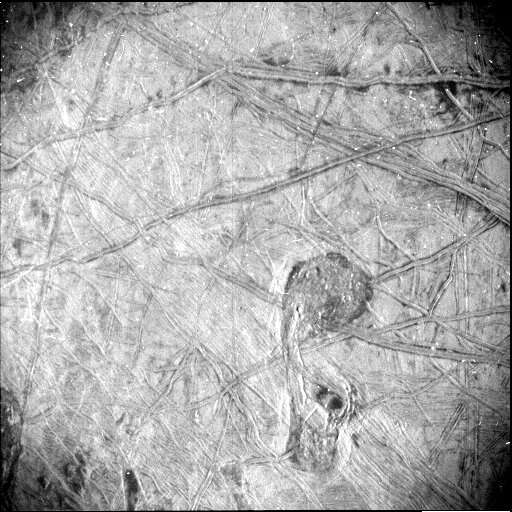
Observations from the spacecraft's pass of the moon provided the first close-up in over two decades of this ocean world, resulting in remarkable imagery and unique science.
The highest-resolution photo NASA's Juno mission has ever taken of a specific portion of Jupiter's moon Europa reveals a detailed view of a puzzling region of the moon's heavily fractured icy crust.
The image covers about 93 miles (150 kilometers) by 125 miles (200 kilometers) of Europa's surface, revealing a region crisscrossed with a network of fine grooves and double ridges (pairs of long parallel lines indicating elevated features in the ice). Near the upper right of the image, as well as just to the right and below center, are dark stains possibly linked to something from below erupting onto the surface.
SpaceX says 5G plan could disrupt Starlink more than previously thought
Wednesday, 05 October 2022 20:01
Plans to use a part of Ku-band for 5G networks in the United States could disrupt Starlink broadband services even more than SpaceX previously estimated, the company said Oct. 4 as it released interference analysis from a third party.
SpaceX launches Crew-5 mission to the space station
Wednesday, 05 October 2022 15:45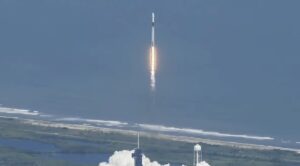
A SpaceX Crew Dragon spacecraft with four people on board is on its way to the International Space Station after a successful launch Oct. 5.
The post SpaceX launches Crew-5 mission to the space station appeared first on SpaceNews.
Russian launches to space from US, first time in 20 years
Wednesday, 05 October 2022 15:15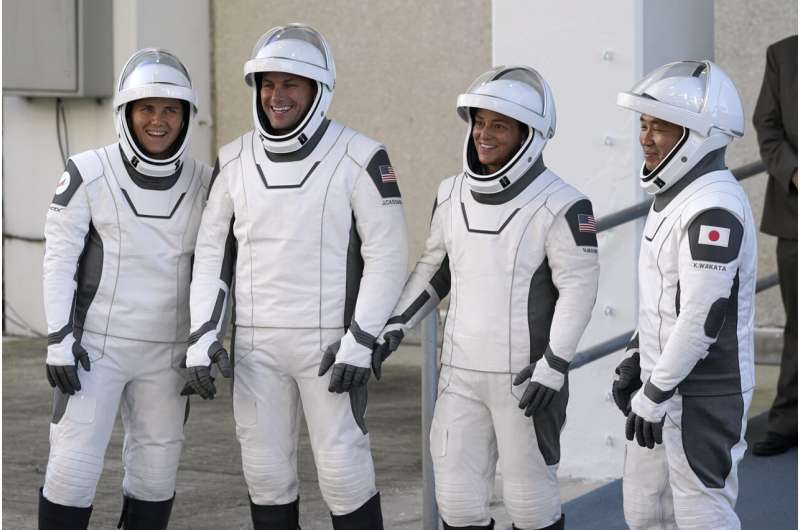
UK, South Korea join ASAT test ban, raising like-minded countries to seven
Wednesday, 05 October 2022 12:21
Lensed galaxies in VV 191 (Webb and Hubble composite image)
Wednesday, 05 October 2022 12:21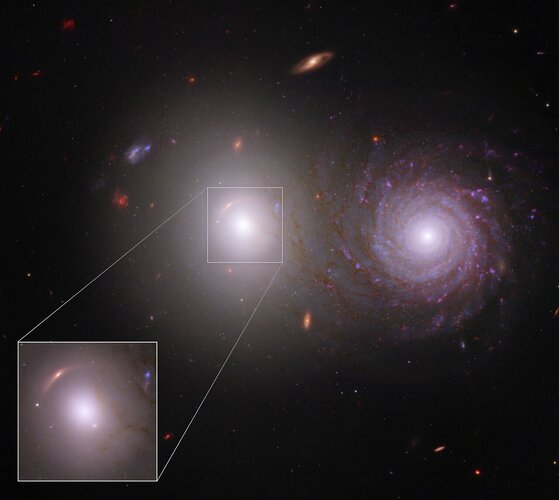 Image:
Lensed galaxies in VV 191 (Webb and Hubble composite image)
Image:
Lensed galaxies in VV 191 (Webb and Hubble composite image) Interacting galaxies VV 191 (Webb and Hubble composite image)
Wednesday, 05 October 2022 12:13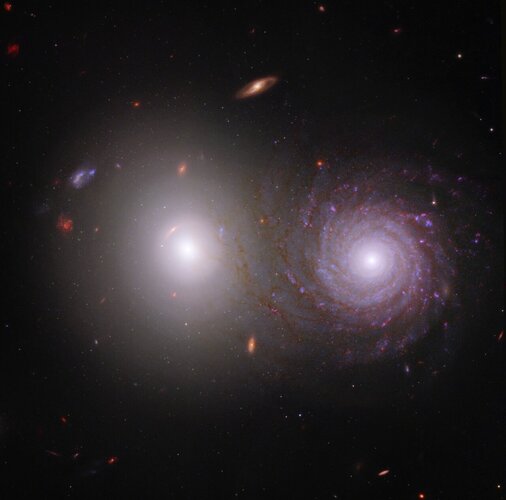 Image:
Interacting galaxies VV 191 (Webb and Hubble composite image)
Image:
Interacting galaxies VV 191 (Webb and Hubble composite image) 
